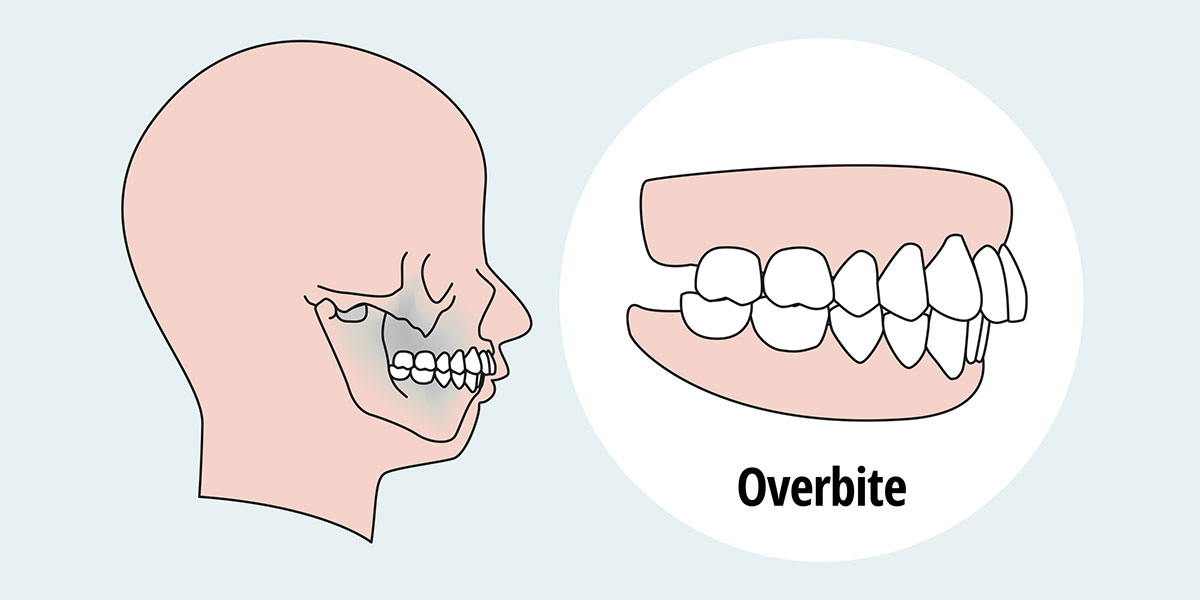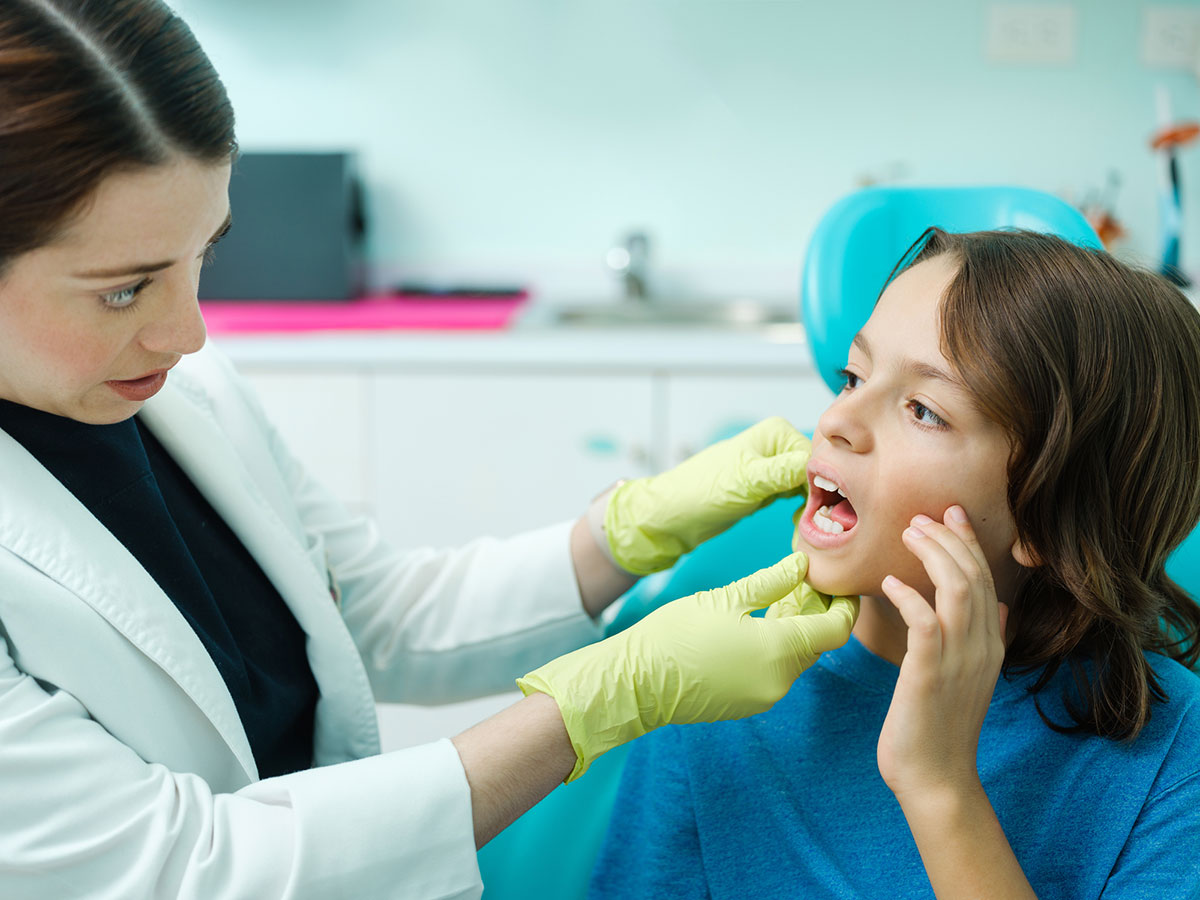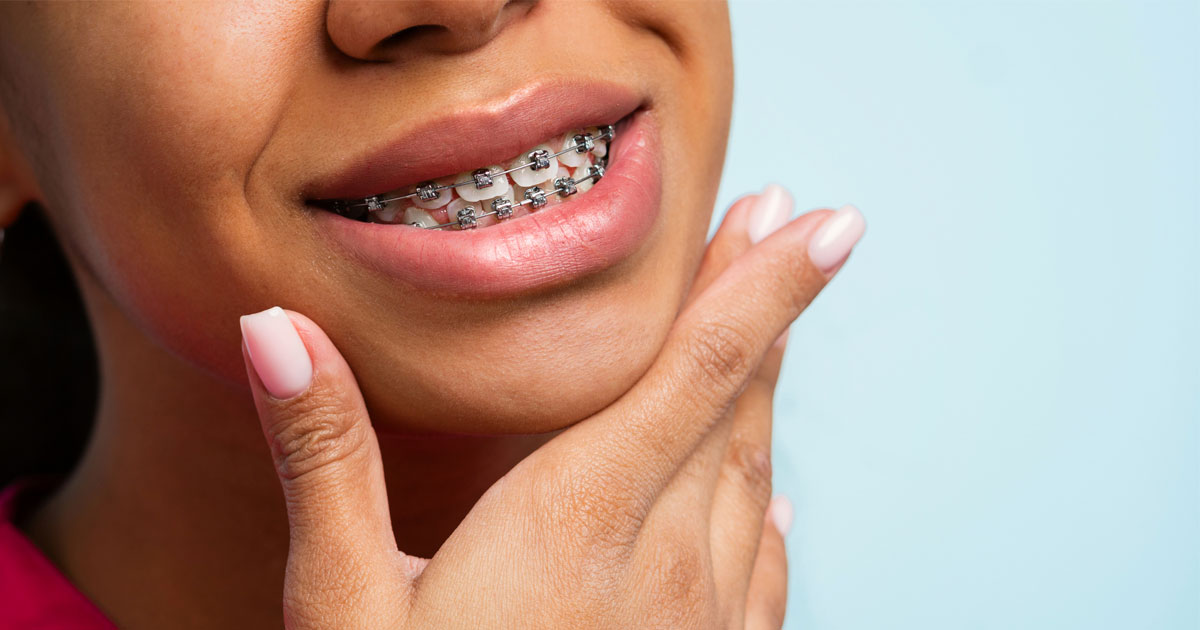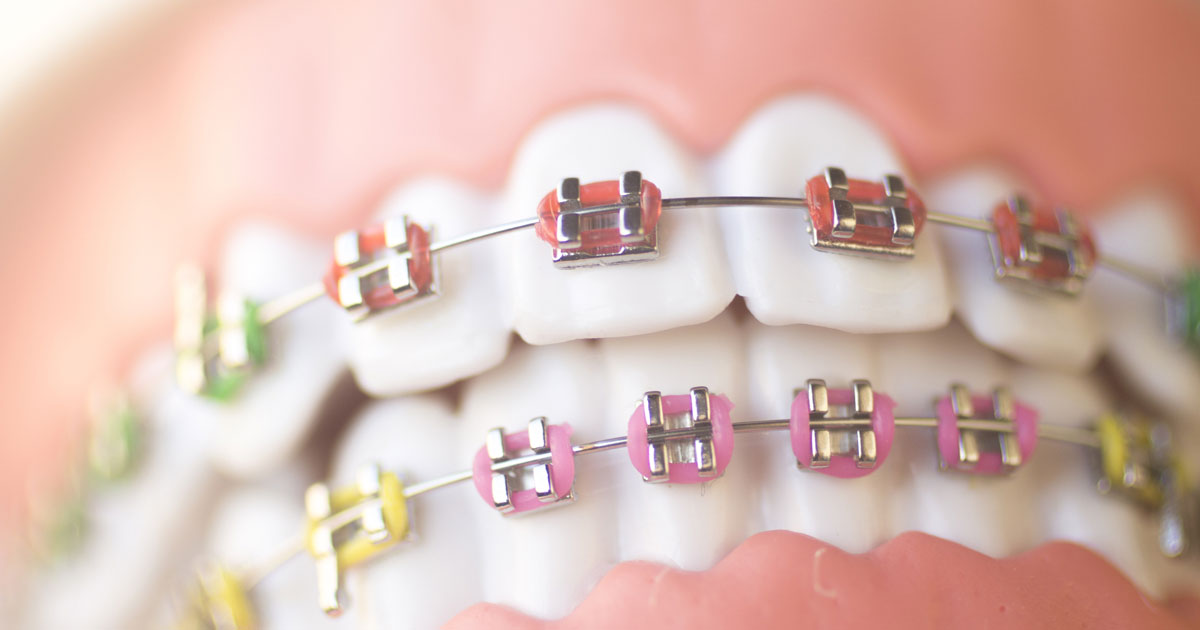As orthodontic care has progressed over the years, there are now a variety of useful methods that can correct almost any alignment or bite issue. Braces have long been one of the top methods used by orthodontists to correct these problems and have only become more effective and discreet since their creation. Now, thousands of people every year choose braces to fix dental issues, including overbites, underbites, crossbites, and other forms of malocclusion.
At Robison Orthodontics, we have ensured countless clients can correct their overbites with the help of braces. If you’re considering overbite correction, here’s everything you need to know.
What Is an Overbite?

When your upper jaw is not properly aligned with your lower jaw and overlaps with your lower jaw so that the top teeth protrude in front of the bottom teeth, this is considered an “overbite.” In some situations, an individual may be born with this misalignment, and in others, the disparity between the upper and lower jaws slowly develops. Overbites can vary in severity, with some individuals experiencing minor overbites that affect only their appearance while others have overbites that affect their bite and mouth function severely.
It’s essential to note that the kind of overbite you have will most likely impact your treatment. The severity of your overbite is based on how far your jaws are misaligned with one another.
The general rating scale for the severity of an overbite is as follows:
- Average: 1 to 3 mm
- Moderate: 4 to 8 mm
- Severe: Any misalignment that is 9 mm or more
Overbites Classified by Cause
Skeletal Overbite
A skeletal overbite occurs when the body has issues developing a proper jaw structure. In most cases, a skeletal overbite is present at or near birth and continues to worsen with age. With these kinds of overbites, the missized jaw can ultimately cause crowded teeth, crooked teeth, and the appearance of a protruding jaw.
Dental Overbite
While skeletal overbites occur due to genetic and skeletal problems that are present at birth, dental overbites are caused by harmful dental habits that form at a young age. Excessive thumb or pacifier sucking, teeth grinding, or the early loss of baby teeth without treatment can all result in a dental overbite.
Overbites Classified By Appearance
Horizontal (Overjets)
Horizontal jaw misalignments are referred to as “overjets.” When an individual has an overjet, their top set of teeth extends out farther than their lower set. This causes the upper front teeth to protrude out because they are pushing on the lower teeth.
Vertical Overbites
Vertical overbites cause the upper set of teeth to completely overlap the lower set. While overjets cause the upper teeth to point diagonally, vertical overbites cause them to point straight down and cover the lower set of teeth.
Do Overbites Cause Issues?
Simply put, overbites can cause dental, skeletal, and muscle issues because your jaws and teeth are not in the correct positions. If you continue to let an overbite go without treatment, you can face many problems.
Severe Jaw Pain

Most people with overbites tend to have jaw pain regardless of their bite’s severity. This is because when your jaws are misaligned, your teeth can’t bite together correctly. Overbites can cause long-term dysfunction of the jaw, which often results in severe jaw pain and temporomandibular disorders.
Overcrowded or Crooked Teeth
Because an overbite can affect the size and shape of your jaws, it can also have an impact on the placement of your teeth. Overcrowding commonly occurs alongside overbites because the teeth do not have the proper space to spread out in the mouth. Overjets can also cause your teeth to protrude or even become crooked the longer they are left untreated.
Difficulty Chewing
Due to the fact that an overbite prevents you from biting down properly, an overbite can make eating much more difficult than it should be. In addition to causing jaw pain, overbites can also make it hard to bite down with force or as far down as you need. Plus, if you have developed a temporomandibular disorder, you may also face extreme muscle pain when you chew for extended periods of time.
Speech Problems
Your speech is largely impacted by the shape of your mouth. When your jaws are misaligned, you may have gaps or air in places where they shouldn’t be. This can cause problems like lisps, whistling through the teeth, or the inability to pronounce certain letters.
TMJ
Temporomandibular joint dysfunction, otherwise known as TMJ, is a temporomandibular disorder that makes chewing or opening your mouth difficult and painful. TMJ can often cause locking of the jaw, clicking noises, and pain throughout the sides of your mouth. This is one of the most common temporomandibular disorders and can be treated if your overbite is corrected.
Severe Headaches or Migraines
Because overbites cause you to apply pressure in the wrong areas when you bite down and misuse your jaw muscles, they can lead to neck and head pain. Overbites are commonly known to cause headaches or even initiate migraines in patients who suffer from them. Correcting your overbite can help to combat headaches by relieving the pressure that is causing them.
Can Braces Fix an Overbite?
Braces have the power to correct overbites because they can move your teeth and jaw. To help fix an overbite, an orthodontist installs braces on the teeth and combines them with rubber bands and springs. By doing this, the braces apply constant, regulated pressure to the jaws to move them slowly. The braces will also incorporate wiring that crosses the teeth horizontally, helping to push and pull them into the correct positions. Braces are the most popular method used to correct overbites because they are relatively noninvasive, less expensive than surgery, and effective.
Why Should You Correct Your Overbite?

There are a collection of reasons why you should consider correcting your overbite.
Some of the most common motivating factors that cause people to fix their overbites include the following:
To Combat Daily Pain
Many people with overbites frequently deal with some kind of head, jaw, or muscle pain. After a while, this pain can become extremely overwhelming and challenging. Choosing to correct your overbite can help make a massive difference in the amount of pain that you feel every day and increase your quality of life again. Unfortunately, many people with overbites don’t realize how much pain their jaws are causing them until they fix their bite.
To Straighten Your Teeth and Fix Your Face Shape
Because overbites can cause crooked teeth or misshapen jaw structures, many people who have them feel self-conscious about their face shape. If your overbite causes your jaws to protrude, takes away your jawline, or results in an issue with your facial structure, correcting it can help improve your overall face shape. By using braces to fix your overbite, you can also help to straighten your teeth during the process, too.
To Prevent Future Problems
The most significant impact of leaving an overbite untreated is that it will worsen with age. Regardless of whether you have a dental or skeletal overbite, your jaw health can continue to worsen the longer your jaw is misaligned. If you choose to correct your bite, you can work to prevent long-term issues such as TMJ and other temporomandibular disorders, tooth decay, and severe jaw pain.
How Long Does It Take to Correct an Overbite with Braces?
The severity of your overbite will have the largest impact on the length of your treatment. For the average overbite that is only a few millimeters’ difference from proper alignment, treatment may only last around 12 to 18 months. With moderate to severe overbites that involve critical misalignments, treatment may take upwards of two years or more. Talk to one of our team members if you’re contemplating braces for an overbite and want to learn more about treatment.
Overbite FAQs
Many patients with overbites have questions regarding their braces treatment.
Here are a few of the most common.
Correct Your Overbite with Robison Orthodontics
When it comes to correcting an overbite, you need the help of an orthodontist you can rely on. At Robison Orthodontics, every one of our team members is passionately devoted to enhancing our clients’ smiles. As a family-run business, we prioritize offering a comfortable, accessible space where any Arizona resident can have superior orthodontic services. When you call in our team, you can trust that we’re ready to listen to your concerns and help you address them with the latest in quality orthodontic care.

Whether you’re ready to start correcting your overbite with braces or you want to learn more about the process, contact Robison Orthodontics to discuss your needs.
Resources :
- Albahri OS, Zaidan AA, Albahri AS, Zaidan BB, Abdulkareem KH, Al-Qaysi ZT, Alamoodi AH, Aleesa AM, Chyad MA, Alesa RM, Kem LC, Lakulu MM, Ibrahim AB, Rashid NA. Systematic review of artificial intelligence techniques in the detection and classification of COVID-19 medical images in terms of evaluation and benchmarking: Taxonomy analysis, challenges, future solutions and methodological aspects. J Infect Public Health. 2020 Oct;13(10):1381-1396. doi: 10.1016/j.jiph.2020.06.028. Epub 2020 Jul 1. PMID: 32646771; PMCID: PMC7328559.

Dr. Tyler Robison is an alum of Mesa’s Mountain View High School. He graduated from Brigham Young University before being accepted to the “Top Ten-nationally ranked” University of Louisville in Kentucky, where he earned his Doctorate in Dental Medicine and a Master’s Degree in Oral Biology. He graduated with honors in the top ten percent of his class. Dr. Robison continued at the University of the Pacific in San Francisco, where he received a second master’s degree in dental science and his orthodontic certification.


